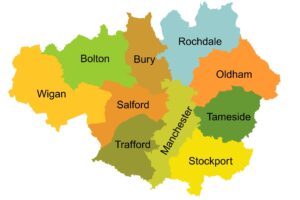Regulations were due to come into force on large sites this month, but have been pushed back to February 2024.
Towards the end of 2023 the UK government proposed plans to introduce biodiversity net gain (BNG) rules to new developments. This means that before construction can begin, developers must deliver a BNG of 10% which means a development will result in more or better-quality natural habitat than there was before development.
However, this rule was due to come into force this month but has unfortunately been postponed to next month as a result of the secondary legislation being introduced to parliament late, The Times newspaper reported.
Whilst the policy is due to be rolled out bigger developments next month, it is due to come into force for smaller sites from April and for nationally significant infrastructure projects in 2025. Currently, it is unclear how or if the delay will affect these plans.
A spokesperson from Defra, said: ‘Mandatory biodiversity net gain will ensure new developments work for both wildlife and people – and just this week the first package to support these measures was passed in parliament.
‘We will now, subject to parliamentary timing, press ahead with the next set of legislation with a view to going live as soon as possible.’
Although, Angus Walker, partner at law firm BDB Pitmans, has said that whilst the rule is needed the delay in its implementation is ‘really quite frustrating’.
‘[The news] that BNG rules have once again been delayed is really quite frustrating, particularly for developers who need clear and consistent regulations in order to effectively plan projects,’ Angus said. ‘The government has been clear that its goal is for a BNG market to evolve, one in which landowners improve land and sell it to developers, with BNG brokers acting as intermediaries.’
Angus added: ‘Without this market BNG legislation will make developers’ work unnecessarily challenging, yet every delay in bringing the rules into force means more time where BNG land providers and brokers are without an income, disincentivising investment in what could be a promising new income source for landowners.’
Image: Nathan Cima
Hefty number of councils require over 10% biodiversity net gain, research shows
Environment rules shouldn’t be scarified for new developments, says Labour

















Leave a Reply